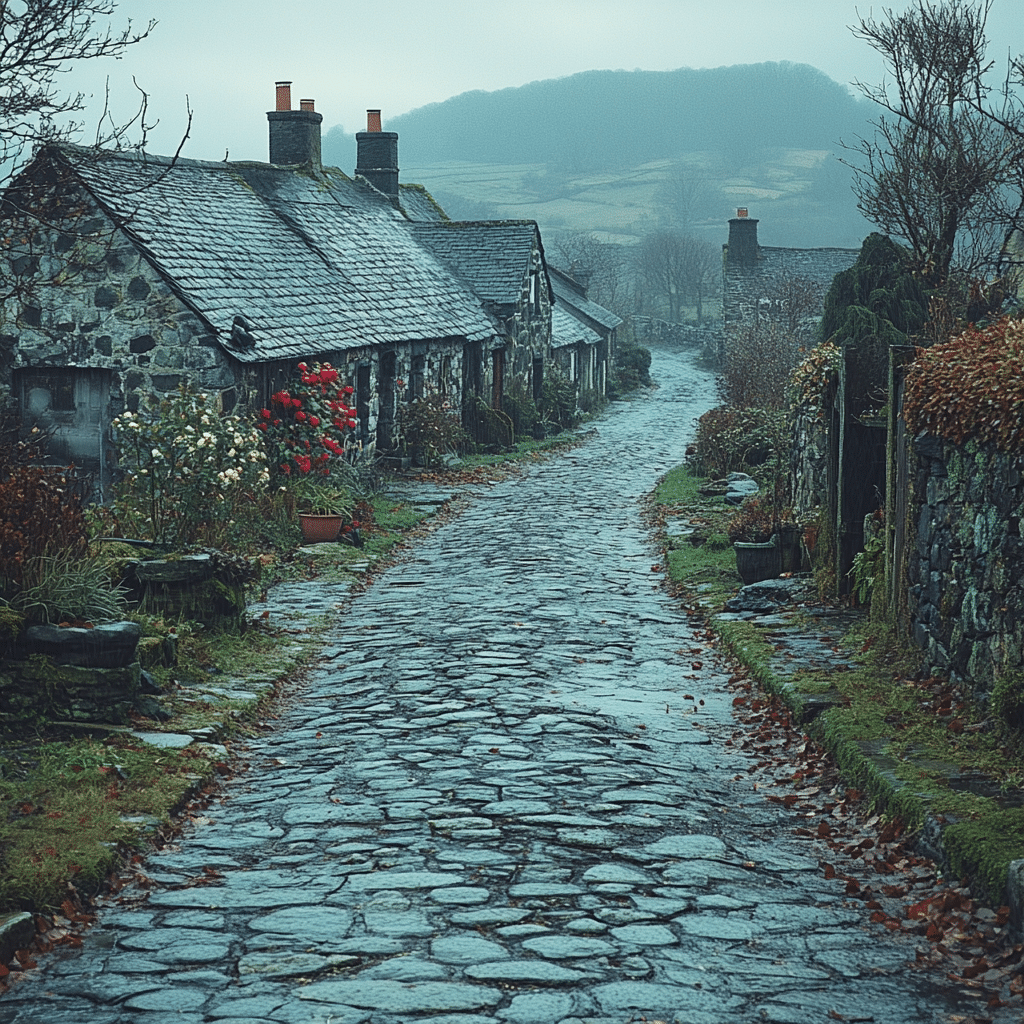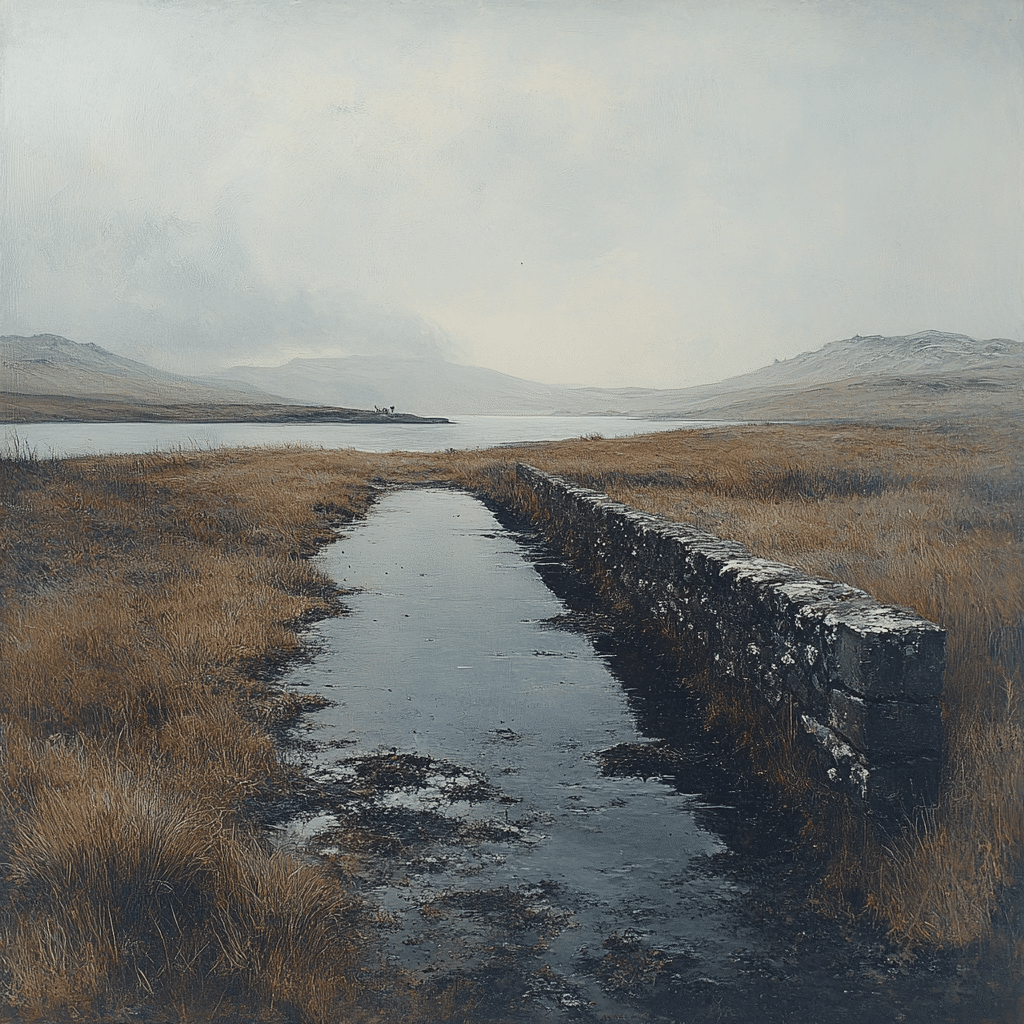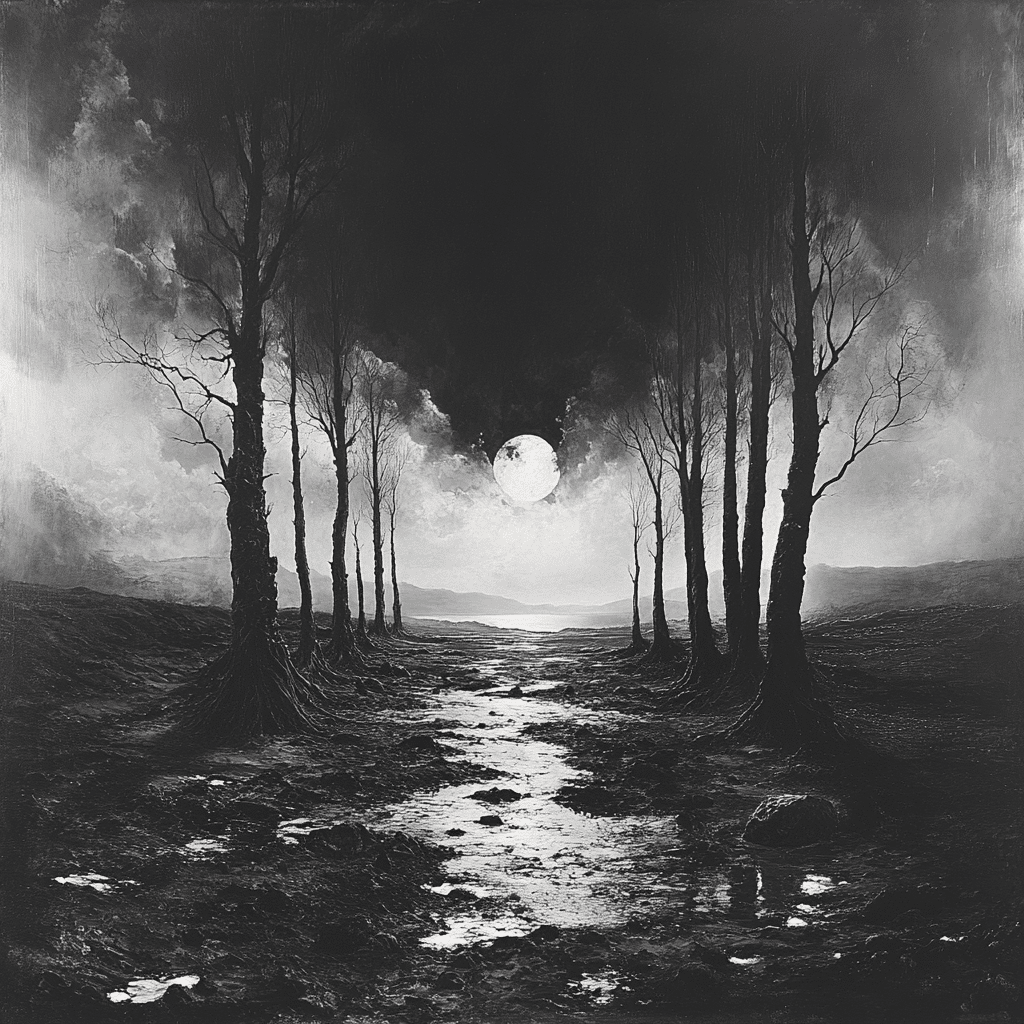Nestled in Londonderry, Northern Ireland, Dungiven is a small town that captivates visitors with its rich history and mesmerizing scenic beauty. This charming market town, whose name translates to “Given’s fort,” is strategically situated where the rivers Roe, Owenreagh, and Owenbeg converge. Perched at the foot of the 1535-foot Benbradagh Mountain, Dungiven is surrounded by impressive natural landscapes, including the magnificent Glenshane Pass. This road rises over 1,000 feet, creating an awe-inspiring route towards Belfast. Let’s dive into the intriguing history and nature that make this town a must-visit destination.
Historical Landmarks in Dungiven: Stepping Back in Time
1. Dungiven Castle: A Testament to Resilience
Dungiven Castle is a remarkable structure dating back to the 17th century. Initially a stronghold of the O’Cahan clan, the castle has witnessed many battles and family feuds. The current edifice, built by Robert Ogilby between 1836 and 1839, sits atop the remains of Carey’s castle, which was devastated by a fire. Today, the castle stands proud as a luxurious hotel, allowing guests to immerse themselves in its storied past. Guided tours provide fascinating insights into its tumultuous history, showcasing an array of artifacts in its on-site museum. The imposing stone structure is a stark reminder of the resilience and transformation that define Dungiven’s legacy.
2. Banagher Old Church: A Sacred Historical Site
Another significant landmark is Banagher Old Church, an ancient ecclesiastical site that offers a glimpse into Dungiven’s spiritual heritage. Nestled within the tranquil churchyard are numerous well-preserved gravestones, the oldest dating back to the early medieval period. Visitors can pay homage at St. Murrough O’Heaney’s shrine, renowned for its architectural simplicity and historic value. This sacred site invites you to reflect on the spiritual and cultural evolution that has shaped the town over centuries.

Natural Beauty: The Scenic Splendor of Dungiven
3. Benbradagh Mountain: A Hiker’s Paradise
Benbradagh Mountain dominates the Dungiven skyline and serves as a true hiker’s paradise. Featuring trails that cater to both novice and experienced hikers, this natural gem offers breathtaking panoramic views from its summit. Gazing across Lough Foyle and the Inishowen Peninsula, you can’t help but be enchanted by the wildflower-rich meadows and diverse local wildlife. Whether you’re an avid hiker or someone seeking a leisurely outdoor escape, Benbradagh Mountain promises a memorable adventure.
4. Roe Valley Country Park: Nature’s Sanctuary
A mere short drive from Dungiven lies Roe Valley Country Park, an oasis cradled by the River Roe. This park is a symphony of wooded areas, tranquil streams, and abundant wildlife. Its ties to Dungiven’s local linen industry are evident in the preserved waterwheels and mills scattered throughout the park. For the more adventurous spirit, the park offers activities such as kayaking and fishing. Alternatively, you can choose to amble along the serene trails, embracing the peaceful ambiance that the park so generously provides.
5. Dungiven Priory: Historical Serenity
The ruins of Dungiven Priory, established in the 12th century, speak volumes about religious dedication and architectural elegance. Set against a backdrop of lush countryside, the site offers a retreat into the past with its impressive stone carvings and remnants of medieval cloisters. The adjacent burial ground stands as a poignant testament to the priory’s lasting legacy and the enduring faith of Dungiven’s ancestors.
| Aspect | Information |
| Name | Dungiven |
| Meaning of Name | “Given’s fort” |
| Location | Convergence of Rivers Roe, Owenreagh, and Owenbeg at the foot of Benbradagh Mountain, near Glenshane Pass, Northern Ireland |
| Elevation | 1535 feet (Mount Benbradagh), Glenshane Pass rises over 1,000 feet |
| Settlement Designation | Town in the Settlement Hierarchy in the Northern Area Plan |
| Geography | Situated in a valley surrounded by mountains, close proximity to Glenshane Pass |
| Historical Sites | Dungiven Castle, built by Robert Ogilby (1836-1839) on the remnants of Carey’s Castle, which had been damaged by fire |
| Religious Demographics | 95.41% Catholic background, 3.65% Protestant or other Christian background |
| Population Composition | Predominantly Catholic with minority Protestant or other Christian residents |
| Accessibility | Main roadways include the A6, leading towards Belfast |
| Feature | Benefits |
| Natural Beauty | Scenic mountain views, rivers, and valleys offer outdoor recreational opportunities and natural splendor. |
| Historical Significance | Rich historical heritage with landmarks like Dungiven Castle, attracting tourists and history enthusiasts. |
| Connectivity | Proximity to major roadways like the A6 provides easy access to Belfast and other regions, boosting travel and commerce. |
| Community Composition | Strong community identity with a predominantly Catholic background contributing to cultural events and community dynamics. |
| Tourism Potential | Dungiven’s scenic and historic landmarks offer significant tourism potential, supporting local businesses and economy. |
Beyond Dungiven: Exploring Kilrea and Maghera
6. Kilrea: Riverside Charm
A 30-minute drive from Dungiven brings you to Kilrea, a quaint town renowned for its historic charm and picturesque setting by the River Bann. Kilrea’s Town Hall, dating back to the 18th century, and the beautiful Riverside Walk are emblematic of the town’s character. The Bann Valley Heritage Centre enriches visitors’ understanding of the local culture and history. Kilrea’s annual fairs should certainly not be missed, offering a taste of community spirit and tradition.
7. Maghera: A Rich Heritage Experience
Further afield, Maghera boasts a rich blend of historical and cultural experiences. The medieval remnants of the Tobermore and Maghera Round Towers are historical treasures. The annual Maghera Agricultural Show symbolizes the community’s vibrancy and commitment to heritage. Literature enthusiasts will appreciate C.S. Lewis Square, commemorating the renowned writer’s connection to the area, providing a scenic spot for reflection.

Preserving and Celebrating Dungiven’s Legacy
As we traverse Dungiven’s illustrious past and breathtaking scenery, it’s evident that this town is more than just another travel destination. Its deep-rooted history, coupled with stunning natural landscapes, continues to enthrall both residents and visitors alike. By preserving these historical sites and their natural habitats, we can honor the tales of old while securing Dungiven’s status as a majestic gem for future generations.
This article invites you to visit Dungiven and its surrounding towns, Kilrea and Maghera. Experience their heritage, landscapes, and inherent charm firsthand. Whether you’re a history buff, a nature lover, or a curious traveler, Dungiven offers a truly enriching journey through Northern Ireland’s past and its serene present. Step into this captivating town and let its stories and natural beauty leave an indelible mark on your soul.
Connections to Broader Stories:
– Learn about the Shanda Vander ark story for different tales of resilience and transformation.
– Explore the fusion of colors in nature, similar to the purple And pink hues you might find in the wildflowers of Dungiven.
– Reflect on how historical interest rates, such as the mortgage rates USA, impact local economies, just as Dungiven’s historical commerce did.
– Enjoy a light-hearted break with the Niiiice meme, as sometimes the simplest pleasures can also offer profound reflections.
– Compare economic decisions with 30-year mortgage interest rates while considering the investment in heritage sites.
– Check out the Avoriaz snow forecast if planning to extend your adventure into skiing regions, paralleling Dungiven’s own natural splendor.
– For those interested in diverse cultures and histories, the Bbw Trans community offers an inclusive look into modern societies.
– Finally, Chapel en le Frith provides another picturesque escape, much like Dungiven, blending history and natural beauty into a compelling visit.
Keyword Integration:
Weave Dungiven, Kilrea, and Maghera into conversations to enrich your understanding of Northern Ireland’s unique offerings. The narrative within Dungiven connects so profoundly with the history and cultures of its surrounding settlements, providing an intricate tapestry of the human experience across these picturesque towns.
Published by: CWM News
Dungiven: Majestic History and Scenic Beauty
A Rich Tapestry of Stories
Dungiven, a picturesque town nestled in Northern Ireland, boasts a tapestry of stories that highlight its scenic beauty and rich history. One fascinating gem is Dungiven Castle, an ancient fortress that dates back to the 17th century. Initially a monastic site, it eventually transformed into a noble residence. The castle’s transition reflects broader socio-political changes in Northern Ireland, much like the fluctuations in 30-year mortgage interest rates, where historical events shape economic trends in fascinating ways. Wandering through the castle’s stone corridors, visitors can almost hear echoes of past centuries.
Legendary Trails and Natural Wonders
What’s more, Dungiven isn’t just about history; it’s a haven for nature enthusiasts too. The sprawling Benbradagh mountain offers hikers an exhilarating blend of rugged terrain and breathtaking views. As you meander up the trails, you might ponder how such natural wonders come to be—much like considering how mortgage structures evolve over time. Speaking of changes, just like adjusting to 30-year mortgage interest rates,( the mountain’s landscape continuously morphs with each season, providing a fresh experience every visit.
Cultural Tidbits and Local Charm
And there’s more to Dungiven than majestic landscapes and historical landmarks. The town is rich with cultural tidbits, like its connection to the Irish chieftains of old. Local folklore speaks of legendary figures like O’Cahan, whose family once ruled the area, adding layers of intrigue for history buffs. These stories enrich our understanding of the community, much like how knowing various mortgage rates( can offer a clearer picture of financial landscapes.
A Community Interwoven with History
Dungiven is a place where past and present coalesce seamlessly. The town square, with its quaint shops and cafes, perfectly complements the historical sites. Striking a balance between preserving the old and embracing the new, Dungiven is a striking testament to resilience and heritage. So, whether you’re there to bask in its natural beauty or to unearth historical treasures, there’s something for everyone in this charming town.

Is Dungiven Catholic or Protestant?
Dungiven has a population where 95.41% come from a Catholic background and 3.65% come from a Protestant or other Christian background.
How did Dungiven get its name?
Dungiven got its name from the meaning “Given’s fort.” It’s located at the meeting point of the rivers Roe, Owenreagh, and Owenbeg, at the foot of Benbradagh mountain next to Glenshane Pass.
Is Dungiven a town or village?
Dungiven is classified as a Town according to the Settlement Hierarchy in the Northern Area Plan.
Who built Dungiven Castle?
The present-day Dungiven Castle was built by Robert Ogilby between 1836 and 1839 on the site of Carey’s castle, which had been seriously damaged by a fire.
What is the most Catholic part of Northern Ireland?
The area of Northern Ireland most associated with a Catholic population can vary, but West Belfast and parts of Derry have significant Catholic communities.
What is the Catholic part of Belfast called?
In Belfast, the area predominantly associated with the Catholic community is known as the Falls Road area.
How did Weymouth Massachusetts get its name?
Weymouth, Massachusetts, got its name from Weymouth, Dorset, England, after being settled by colonists from that area in 1622.
How did Lackawanna get its name?
Lackawanna got its name from the Lenape word “Lechauhanne,” meaning “stream that forks,” referring to the Lackawanna River.
How did Ashland PA get its name?
Ashland, PA, was named after Ashland, the estate of the prominent American statesman Henry Clay, near Lexington, Kentucky.
What city is closest to the Giants Causeway?
The city closest to the Giants Causeway is Coleraine, located in the County Londonderry area of Northern Ireland.
What is the closest village to the Giant’s Causeway?
The closest village to the Giants Causeway is Bushmills, known for its famous distillery and proximity to the historic site.
Is Ballyclare a town?
Ballyclare is indeed categorized as a town and is situated within County Antrim in Northern Ireland.
What is the name of the castle fortress in Scotland built atop the volcanic castle Rock?
The castle fortress in Scotland built atop volcanic Castle Rock is called Edinburgh Castle.
Who built the Stone castle?
The Stone Castle was built in various parts of Europe by different stonemasons and local lords, making it hard to pinpoint one builder or origin.
Who built Norman castle?
Norman castles, particularly those in England and France, were typically built by Norman nobility and soldiers, often under the orders of King William the Conqueror after the Norman Conquest of 1066.



